Viviani: I'm convinced I can repeat the same results at Cofidis
Italian on leaving Deceuninck-QuickStep and the road to the Tokyo 2020 Olympics
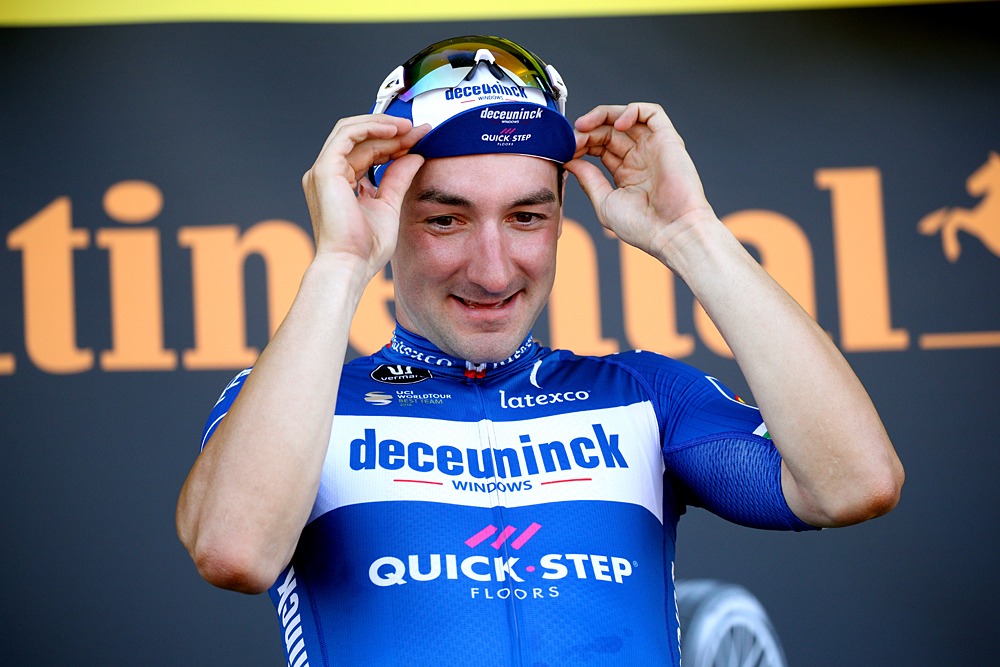
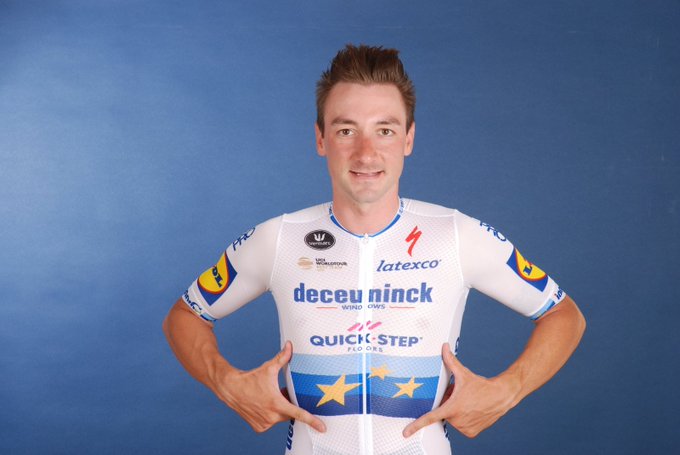
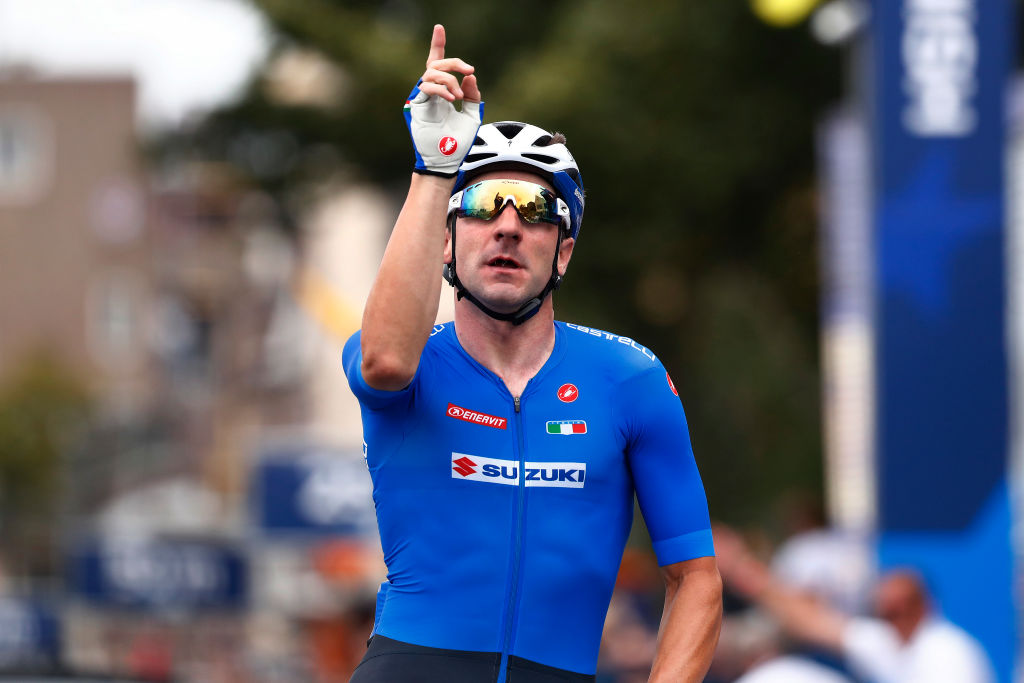
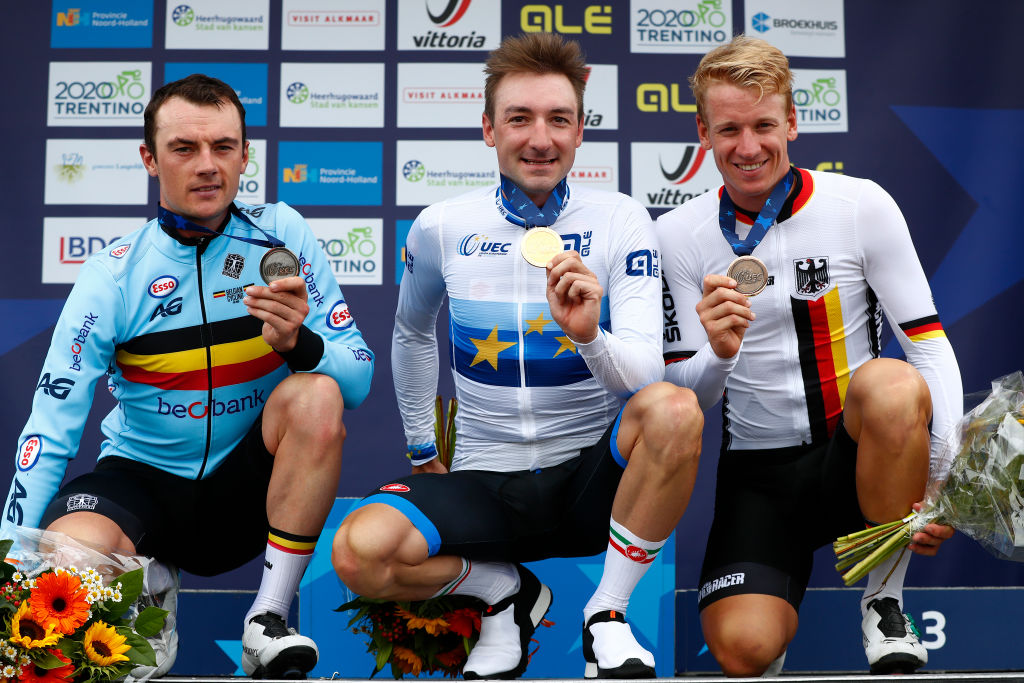
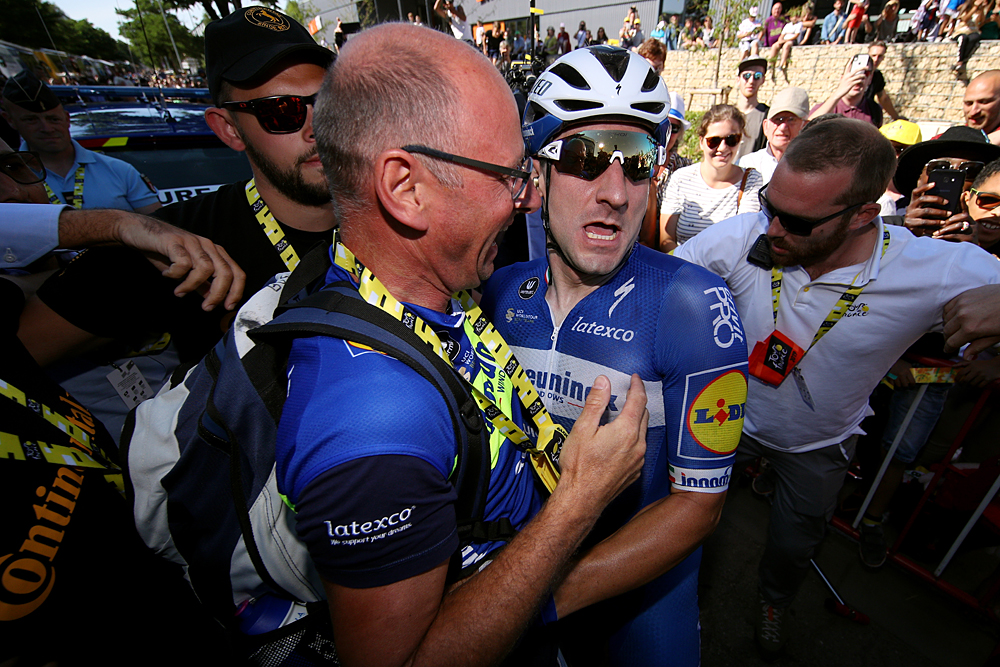
Elia Viviani never seems to stop. The newly crowned European champion’s road campaign may be winding down at the EuroEyes Cyclassics in Hamburg and the Bretagne Classic over the next two weekends, but the curtain won't fall on his 2019 season until November at the earliest. The demands of qualifying to defend his omnium title at the Tokyo 2020 Olympics have it so.
It has ever been thus. One season can easily bleed into the next for a man who toggles between road and track, but Viviani appears to know no other way of existing.
He has already had a busy August. A week after completing the Tour de France, he landed the RideLondon Classic. Seven days after that, he claimed victory in the European Championships in Alkmaar. In between, he confirmed his imminent transfer to Cofidis. All in a month’s work, and there are still miles to ride and promises to keep before he finishes his tenure at Deceuninck-QuickStep.
"I’m trying to hang tough now and keep my Tour condition going for these last two races," Viviani tells Cyclingnews. "Then after a short rest, I’ll be focusing on the track."
Whatever happens in the coming two weeks, Viviani’s road season is already a success thanks to that European title and the maiden Tour stage victory that preceded it. For a sustained spell in May and June, however, Viviani’s year wore a different mien. If it was one thing to start the Giro d’Italia with fewer wins under his belt than at the same point in 2018, it was quite another to come away from this year’s corsa rosa with no victories at all.
In public, he wore his dissatisfaction with as much good grace as he could muster, keeping his counsel when the commissaires stripped him of victory in Orbetello, and then praising the speed of Arnaud Démare and Pascal Ackermann when he fell short thereafter. In private, his disappointment was more acute. Viviani was in the process of negotiating his 2020 contract and, suddenly, there was no guarantee that he would even make Deceuninck-QuickStep’s Tour de France squad.
Typically, Viviani’s response was to keep moving. Even before the Giro had drawn to a conclusion, he was already in Livigno, recalibrating in the company of Max Richeze, and a brace of stage wins on his return to competition at the Tour de Suisse was a salve to morale ahead of July, where he lined out for only the second Tour of his career.
Get The Leadout Newsletter
The latest race content, interviews, features, reviews and expert buying guides, direct to your inbox!
"Obviously, after the Giro, I was lacking a bit… Well, I really needed to believe in myself a bit more," Viviani says. "I had to train hard to get back stronger than I’d been before, and I went to Switzerland with a big desire to prove myself all over again, to show that I hadn’t lost anything."
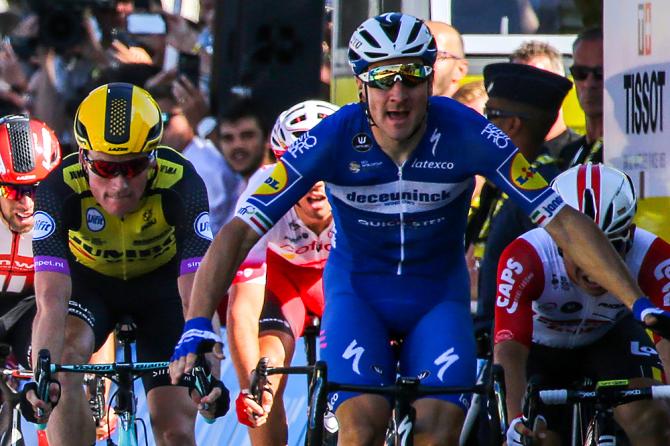
After a false start on the Tour’s opening day in Brussels, Viviani finally opened his account at La Grande Boucle on stage 4 in Nancy. It may have been the 74th victory of his professional career, his 25th at WorldTour level and his 10th on a Grand Tour, but a sprinter without a Tour de France stage victory is subject to the same doubts that plague a one-day specialist without a Monument win. Only now is Viviani truly part of the club.
"Winning on the Tour closed a circle in terms of what was left for me to win," he admits. "When I think of what’s left for me now, all that’s missing is an important Classic, Gent-Wevelgem or Milan-San Remo."
As befits a man who speaks repeatedly of the need to be "at 110 per cent" for his targeted races, however, Viviani evinces a nagging dissatisfaction at how the remainder of his Tour panned out. A slow puncture thwarted him in Chalon-sur-Saône, a startling Dylan Groenewegen surprised him in Albi, and then he was denied by Caleb Ewan in Nîmes.
"After Paris, to be honest, when I looked back on my Tour, I felt like I could have done more. I won a stage but without some errors, I think I could have won two or three. I was happy with my stage win, obviously, but I think I could have done more," Viviani says, and then catches himself: "But then maybe that helped me to be very determined for London and for the European Championships."
Moving to Cofidis
The nature of Viviani's breakaway win in Alkmaar drew comparisons with Mario Cipollini’s 2002 triumph at Gent-Wevelgem and even led to calls for him to review his decision to forgo the Yorkshire Worlds. Even if track commitments hadn’t already ruled him out, Viviani maintains that his challenge would never have survived the accelerations of men like Mathieu van der Poel and Peter Sagan on the final lap.
"I’m an ambitious athlete," Viviani says, "but I'm also a realistic one."
Such pragmatism served Viviani as his transfer to Cofidis took shape earlier this summer. His avowed preference was to remain at Deceuninck-QuickStep, but it soon became apparent that Patrick Lefevere’s budget would not accommodate the kind of increment he felt his performances over the past two years had warranted. So it goes. Viviani accepted the verdict without complaint, and explored other options.
"My desire at the start of the year was to stay, but it’s a team with a lot of champions, so they have to make choices and those choices, quite rightly, are made by Patrick," Viviani says. "Above all, I’m sorry to be leaving this fantastic group, but Cofidis is a project that I liked straight away."
The move to Cofidis, announced in early August, took shape between the Giro and Tour, when he met with team manager Cedric Vasseur near his base in Monaco. A salary commensurate with his palmarès was only part of the equation; Viviani’s new team also had to accommodate his Olympic ambitions, just as Team Sky had done in 2015 and 2016.
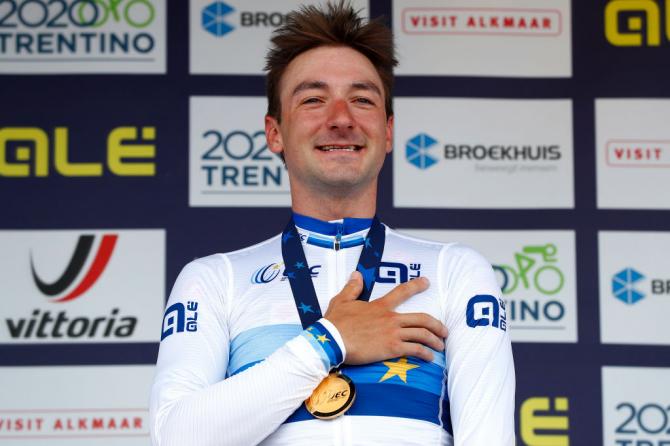
As if to underscore their backing for his track career, Cofidis signed Viviani’s Madison partner Simone Consonni from UAE Team Emirates. Lead-out man Fabio Sabatini will follow Viviani from Deceuninck-QuickStep and his brother Attilio will ride as a stagiaire for Cofidis in the final weeks of this season, while directeur sportif Roberto Damiani will help with the integration of the new Italian cohort.
"It will be a team built primarily around me, and that makes me proud," says Viviani, who acknowledges that his leader's role will be a new departure in his professional career.
At Liquigas, he was a developing rider on a team led by men like Ivan Basso, Vincenzo Nibali and, later, Peter Sagan. At Sky, his sprint success was a footnote to the team’s Grand Tour ambitions. At QuickStep, a team already replete with potential winners, the pressure was not so much to win as to earn the right to do so. At Cofidis, by contrast, the success or failure of the team’s season will rest primarily on Viviani’s shoulders.
"When you want to be a leader, this pressure is normal and it’s only right that it’s there. Besides, I’m someone who puts pressure on himself anyway, so it doesn’t frighten me," Viviani says. "I’m happy that there’s a group specifically around me and that my results will be important. It’s an extra motivation. There’s pressure, of course, but it’s the pressure that a leader wants to have, that he must have. When I accepted this project, I knew well what was waiting for me in that regard. I’m ready."
It remains to be seen if Viviani can maintain his standards when he leaves the friendly confines of Deceuninck-QuickStep, though he can take heart, perhaps, from being that rarest of species: a rider who continued to improve after leaving Team Sky.
"After being on those teams, I know that I can’t go somewhere else and just win everything by myself, and at Cofidis, I’ll have a good group around me," he says
"It’s true to say that the team makes a difference, but when it comes down to it, you can’t blame the team if you don’t win. The performances of the athlete depend on the athlete himself. At my age, and after 10 years as a professional, you have to know yourself, and know what you need to do to win. I’m convinced that I can repeat the results I got with QuickStep and Sky."
The road to Tokyo
This Autumn, Viviani’s attention will shift towards laying the foundations to repeat – and perhaps even better – his Olympic success of 2016. In Rio, he was Italy’s sole representative on the track, but he hopes to be part of a larger contingent in Tokyo next summer. Powered by Filippo Ganna, Italy expect to qualify a quartet for the team pursuit, while Viviani and Consonni are eyeing a place in the reintroduced Madison. Viviani could yet find himself competing on three fronts in the Izu Velodrome, though he downplays the idea at this early juncture.
"The omnium is my number one objective, with the Madison just behind it. For the pursuit, it’s a bit different, we’ll have to see," he says. "Right now, the Italian pursuit team is very strong, and they’ll do specific preparation for it. It would be a dream to make it into the strongest four, but that’s something we’ll only decide in the month leading up to Tokyo."
The first steps of Viviani’s journey to Japan, meanwhile, have already been sketched out. He will take to the boards once again at the European Championships in Apeldoorn and then ride Six Day London immediately afterwards, from October 22-27. Next on the agenda is the opening round of the Track World Cup in Minsk, and Viviani hopes to amass enough Olympic qualifying points there to skip the following round in Glasgow and – finally – enjoy something of an off-season.
"Six Day London is a prestigious event and one I’ve wanted to do for a long time, but it’s also important because it’s six extra days of racing on the track, which is invaluable as preparation for the World Cup," Viviani explains. "All of that will help me to be sharp in Minsk, and that’s what I need. London is a nice objective in itself but, above all, it’s great preparation for the World Cup, where I’ll be aiming to be 110 per cent."
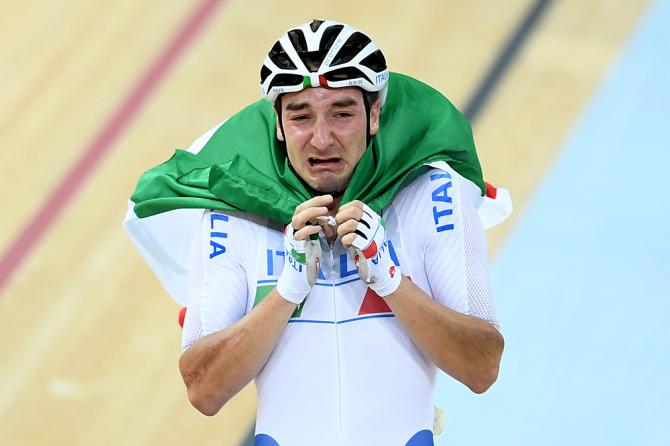
This winter, Viviani and Cofidis will decide on how best to mix road and track in 2020, though it is already clear that he will not follow precisely the same formula as in 2016. On that occasion, Viviani used the Tour de Pologne as his final tune-up for the Olympics. This time out, he will spend July leading the line at the Tour de France for Cofidis, who are still seeking their first stage win on the race since 2008. He can draw encouragement, perhaps, from how Mark Cavendish won four stages of the 2016 Tour before claiming omnium bronze in Rio.
"I think you can do it, especially because the omnium has changed," Viviani says. "There aren’t time trials in the omnium anymore and that helps a lot with that transition from road to track. The main thing is to arrive at the Olympics with super form. In my head, I think I can do that, and that’s what we’ll try to do."
Two race days remain on Viviani’s 2019 WorldTour calendar, but he is already thinking of the 349 days that separate him from the omnium in Tokyo next August. There will be next to no let up, but then again, he knows no other way.

Barry Ryan was Head of Features at Cyclingnews. He has covered professional cycling since 2010, reporting from the Tour de France, Giro d’Italia and events from Argentina to Japan. His writing has appeared in The Independent, Procycling and Cycling Plus. He is the author of The Ascent: Sean Kelly, Stephen Roche and the Rise of Irish Cycling’s Golden Generation, published by Gill Books.